Belated as it may be, I’m finally getting around to talking about Scott Weiland. His ridiculously premature death just around Christmas had left me baffled and sad in equal measure.
While, predictably, a much bigger fuss has been made over the death of David Bowie – and as much as I respect Bowie (and in particular love the Blackstar album) – Scott Weiland’s death hit me a lot harder.
While I’m obviously familiar with and fond of some of Bowie’s work, Weiland’s music has been a part of my life since I was in my early teens and developing my longest-lasting musical tastes.
His death at the age of 48 has left me a little disoriented and numb.
It’s one of those pointless, premature passings that isn’t young enough to qualify for the mythic 27 Club thing and isn’t old enough to qualify for ‘well, he had a good run’.
He didn’t get a good run: 48 is way too young for someone so talented – and someone with young children – to die.
I’ve searched for meaning in it and there isn’t any. It was a silly and needless death for someone who had much more life to live and so much more to offer. The moody photo above, by the way, is the work of Jamie Weiland (and was published in LA Weekly here), and seems to capture or convey the mood as it now is.
Annoyingly too, I didn’t even hear about Scott’s death until almost a fortnight after it happened. I was taking a sort of Internet detox for the Christmas period and wasn’t checking news-feeds or websites; and Scott’s death didn’t make the news or the papers over here, so I only found out when I was talking to someone about David Bowie’s death and he happened to casually mention Scott too.
While, naturally, I threw on some of my Stone Temple Pilots albums, I realised almost immediately that there was one song in particular – the track ‘Atlanta’ from the No.4 album – that I would have to avoid at all costs for a long time. That track has always made me emotional, being such a haunting, beautiful song; now, hearing of Scott’s passing, there was no way I could handle listening to it.
But, fittingly enough, that song, ‘Atlanta’, is the perfect showcase for just how good, how powerful, a singer Scott was; being a musically sparse kind of composition, it really does allow Scott’s voice to swim and soar in a breathtaking way. Listen to it again, if you don’t remember it: it really is a stunning piece of music and it really does demonstrate what a great poet and vocal talent Scott was.
I actually hadn’t been a fan of Stone Temple Pilots first album, Core, being, at that time, spoilt for choice when it came to great albums and artists – I still don’t rate Core all that highly. But by the time Purple came along in 1994, it was a different story. I pretty much wore out my tape of that album, constantly re-listening to tracks like ‘Meat Plow’, ‘Lounge Fly’ and ‘Big Empty’. Their third album, Tiny Music, was played to pieces even more and was practically the only thing I was listening to for a whole summer: my (probably) two favorite STP tracks – ‘Big Bang Babies’ and ‘Seven Caged Tigers’ are both on that record.
In the context, again, of how much coverage David Bowie’s sad death has received, I have to say, flat out, that there are way more Scott Weiland songs that I know like the back of my hand than there are Bowie ones. Songs that wander in and out of my consciousness randomly, several times in any given week: ‘Sex Type Thing’, ‘Barbarella’, ‘Slither’, ‘Dancing Days’, ‘Vasoline’, ‘And So I Know’, etc, the list goes on.
As the grunge and even ‘alt rock’ scenes imploded or faded from popular consciousness as the years went on, Stone Temple Pilots – who were, in truth, considered by many not to have really been a proper part of the ‘scene’ in the first place – continued making quality music, becoming reliable, trusted purveyors of the art. I still say, by the way, that ‘Big Bang Babies’ might be the best pop song released in decades – and the fact that most people have never heard it just demonstrates how much of a gulf there is between great music and popular music.
I was loyal, continued to look forward to their releases, and continued to listen. Some of their best stuff – and some of Scott’s best stuff – came down the line. Songs like ‘Sour Girl’, ‘I Got You’ and yes, the heart-stopping ‘Atlanta’, were among the best things that band ever produced.
Scott will also be remembered for other projects too, including his solo work and, of course, Velvet Revolver, in which he teamed up with half of Guns N’ Roses to front some genuinely kick-ass rock n’ roll. Some of those Velvet Revolver tracks – like ‘Set Me Free’ and ‘Come On, Come In’ – are pretty much the baddest-ass rock tracks put out out by anyone in a decade.
In fact, by the time Velvet Revolver was happening, Scott seemed like the last old-style rock n’ roll figure still going in America.
Even many of those who had initially been negative about STP and Weiland back at the start – at a time when they were perceived by some to have been opportunists getting on the alt-rock bandwagon – had revised their view by the time of the second or third album.
Personally, at that time, I had never quite seen the validity of the Pearl Jam or Vedder comparisons and had actually thought that Weiland had sounded more like Layne Staley (though not derivative of Staley; just a similar vocal sound). And aside from that first album – which I had never really liked anyway – I never felt STP were copying anyone, but genuinely were crafting out their own sound and identity.
This was the attitude expressed too by Smashing Pumpkins’ Billy Corgan after news of Weiland’s death broke. Corgan wrote that it had been STP’s third album, Tiny Music, that had eventually won him over; adding a David Bowie comparison, writing that ‘like Bowie can and does, it was Scott’s phrasing that pushed his music into a unique, and hard to pin down, aesthetic sonicsphere.‘
It certainly is the case that Scott sounded and resembled much older rock stars like Morrison and Bowie than any contemporary frontman to whom he was frequently being compared in the early days. I also, like Corgan, would cite Tiny Music as my favorite STP album, not just for the euphoria of ‘Big Bang Babies’ but for more expansive tracks like ‘And So I Know’.
And ‘Seven Caged Tigers’ is still a track that gets me in the gut every time and makes me want to float away on a breeze.
There was always a slightly off-beat edginess to Scott’s persona and stage presence, and an acute, Prince-like sexuality that was uncommon among his contemporaries in the ‘alt rock’ scene that flourished in the early 90s. It gave him a distinctive quality. But, more importantly, he was a great singer, in the mold of Jim Morrisson – Morrison in fact is always who I think of when I watch Weiland.
Like Morrisson, he could also be an achingly beautiful lyricist.
There always seemed to be an underlying, lingering dissatisfaction or melancholy to him as a person; but there was with most of the great singers and songwriters I grew up lionising. It is possible that that frailty or vulnerability is part of what made them such great artists; several of them have died ridiculously young already, Cobain, Shannon Hoon and Layne Staley in particular.
Hey, at least we’ve still got the likes of Chris Cornell and Eddie Vedder.
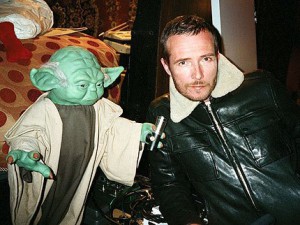
Scott Weiland had for a long time seemed like he’d escaped the rock n’ roll mortality danger-zone. But apparently he hadn’t.
One of the last times I watched any footage of Scott was the very downcast, sad interview he did with Howard Stern a few years ago; he had seemed sad and a little lost back then.
While we know that he was also very troubled in the months leading up to his death, struggling with a bereavement, with the cancer diagnoses of his parents, with estrangement from his children, and with health problems of his own and multiple medications in addition to his relapse into drug-taking, what was also very sad about the last interview I saw with Scott is when he explained how difficult it is for older musicians these days because of the changed nature of the music business.
Specifically, I remember him talking about the strain of having to tour a lot for financial reasons, due to the general decrease in CD or album sales and the way people consume music. Which demonstrates that, for all the good in the modern, digital way people process music, there is a downside too. And where artists – like Weiland and STP and countless others – used to be able to make a huge living out of having a very successful or popular album, the way it works now is very different. Whereas it used to be that you toured endlessly to build a rep and a crowd and then make a living selling records, you now have to tour to actually make your living via ticket sales – which is a much bigger physical and emotional strain, especially as you get older.
Someone with Scott’s health problems, as well as his emotional issues, shouldn’t have been touring.
I bought his biography/book, the ironically titled Not Dead, Not For Sale (derived from the ‘Trippin’ On a Hole in a Paper Heart’ lyrics from Tiny Music), about a year ago, but had not gotten around to reading it yet. I probably won’t now, at least not for a while longer.
Eventually I will; and eventually I’ll be happily listening to all the albums again. Eventually I’ll even dare to listen to ‘Atlanta’ again.
Scott Weiland sang and fronted some of the best music in a generation; actually some of the best music probably of any era. The more time passes, the more I appreciate how lucky I was to grow up at the time I did, exposed to the music I was exposed to and to some truly special artists.
I wish I could say something poetic or meaningful about his death at the age of 49. But I can’t. It was pointless.
It isn’t romantic; it isn’t some glamorous or mythic rock n’ roll death. It’s just a waste and so, so sad.
Read all music posts.
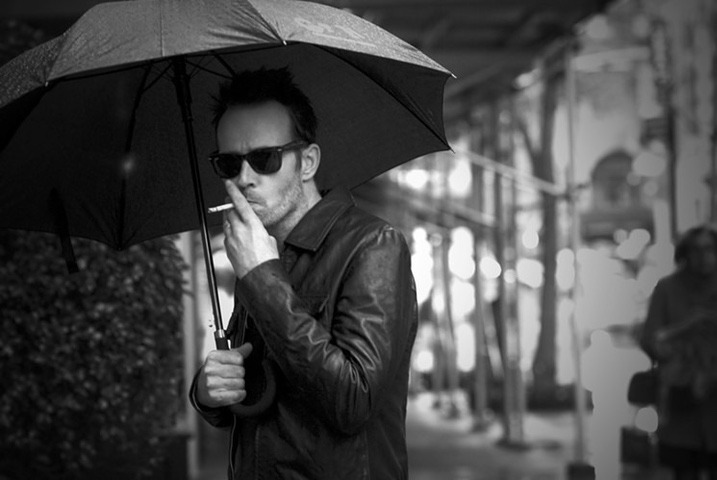
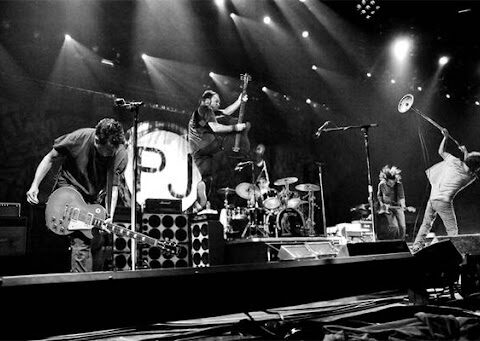
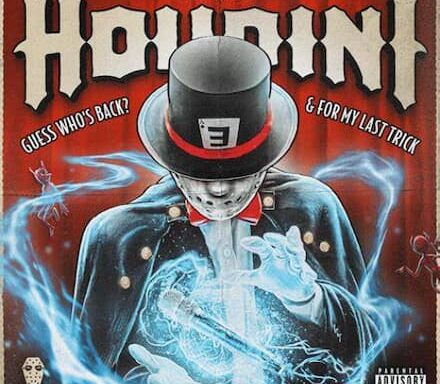
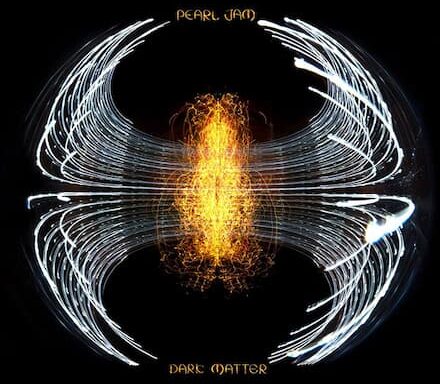

(Not that anybody was asking) How did I get here? I was randomly thinking to myself, “Which Jackson had their own private Island” and wondering if he still owned it. This inevitably led to MJ himself and remembering, “Oh yeah, he was married to Lisa Marie, I remember that.” Then discovering that only last year that her only son, grandson of Elvis Pressly, Benjamin Keough, dabbler musician, committed suicide at the age of 27.
“27, isn’t there a club or something that tBB keeps telling me about?” I wondered if this troubled young man made the ‘list’ for the 27 Club. I wondered if tBB had written a Club27 specific article or piece. This article was the closest I got. Then I was saddened when I realised how it wasn’t long before we lost Chris Cornell, too.
Fun fact: the worst and creepiest MJ song ever was actually written for him by R. Kelly. It was called You Are Not Alone: not only is the song horrendously bad, but the entire video is just MJ and Lisa Marie walking around naked.
I distinctly remember the music video at the time of its conception and the song’s release. I remember how there was an Oprah interview or some such surrounding MJ’s and Lisa Marie’s union, and that You Are Not Alone song. Ahh, the days before blogs and social media.